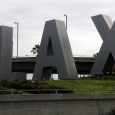Living Wages
Living wage policies have been established in cities, counties, school districts, states and other public agencies throughout the country to lift workers out of poverty. Most living wage laws set minimum wage and benefit standards for public contracts, subsidies and leaseholders on public land. Several are based upon a geographic zone. Today there are over 150 such laws in place.
Commentary
Cry Wolf Quotes
Nonetheless, if the goal of the Coastal Zone Minimum Wage is to help low-income workers in Santa Monica, the Ordinance is worse than useless. The direct benefits of the Ordinance are more poorly targeted than in any social welfare legislation we have ever studied.
A poorly crafted ‘living wage’ plan could achieve the opposite of its well-intentioned social goals. It could result in fewer good-paying jobs in the city, and less opportunity at the entry level. It could drive up the cost of city programs, leaving fewer resources to help lower-income families.
As if New York's economy wasn't already stressed enough, there's a renewed push in the City Council for a local ‘living wage’ law that could hinder the city's economic renewal while reducing job opportunities for the very people it is supposed to help.
Maryland legislators’ good intentions do not change the fact that living wages result in job loss, particularly among the less skilled and less educated.
Related Laws and Rules
Evidence
-
The Economic Impact of Local Living Wages
The Economic Policy Institute finds that the costs of living wage ordinances are often overestimated.
-
Examining the Evidence: The Impact of the Los Angeles Living Wage Ordinance on Workers and Employers
Los Angeles Alliance for a New Economy: The LA living wage ordinance brought a pay raise to 10,000 workers, most of whom were poor.
Backgrounders & Briefs
Living Wage Policy Brief: Stephanie Luce
Living wage ordinances have helped thousands of workers and tiresome cry wolf claims are wrong.
Resources
Political Economy Research Institute is a think tank focused on a variety of subjects such as diverse financial regulation, living wages and environmental protection.
University of California-Berkeley Labor Center carries out research on labor and workplace-related issues.
The National Employment Law Project is an organization that promotes economically just public policy in the face of the prevailing trends of the law several decades.



